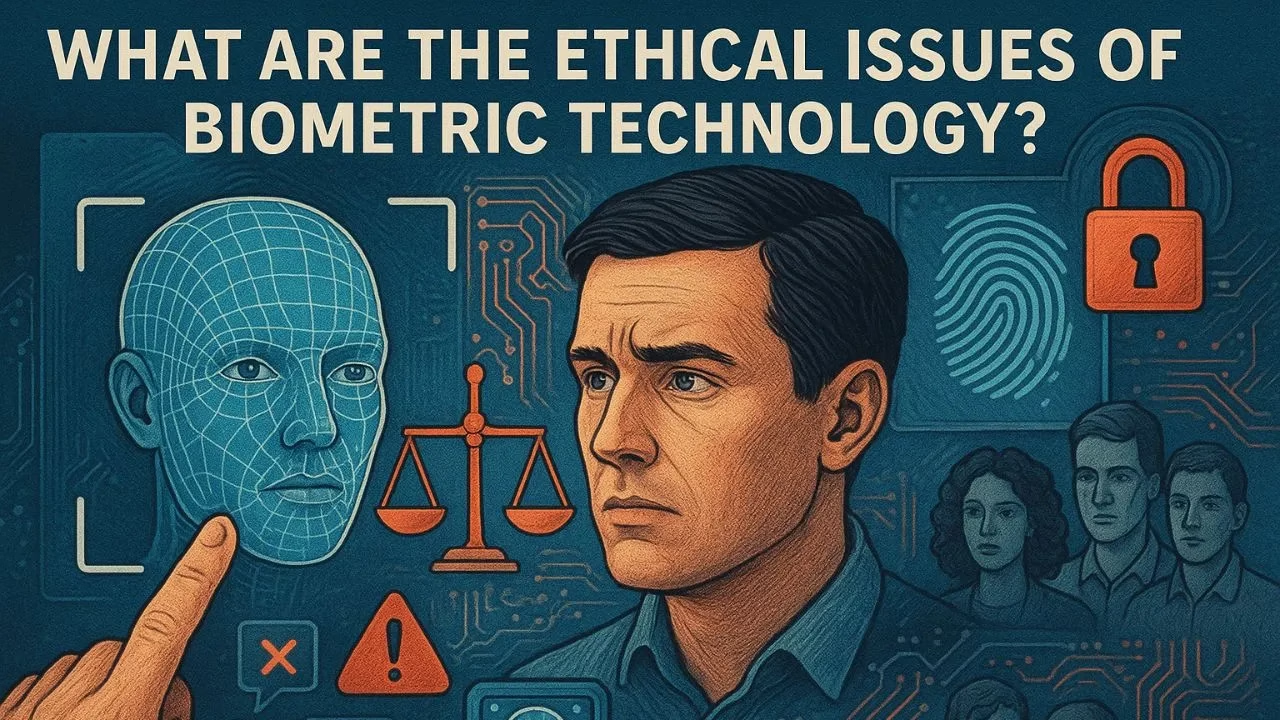Understanding What Are the Ethical Issues of Biometric Technology
What are the ethical issues of biometric technology is a question becoming increasingly important as biometric systems such as fingerprint recognition, facial recognition, and iris scans are being used worldwide. While biometrics offers enhanced security and convenience, it also raises deep ethical concerns related to privacy, data security, human rights, and fairness. Businesses, governments, and individuals need to evaluate both the benefits and challenges to ensure responsible usage.
What Are the Ethical Issues of Biometric Technology in Terms of Privacy
One of the most pressing concerns in what are the ethical issues of biometric technology revolves around privacy. Biometrics involves collecting unique personal data such as fingerprints, facial patterns, or voiceprints. Unlike passwords, these identifiers cannot be changed if compromised. The ethical issue arises when organizations collect biometric data without consent or use it for surveillance beyond the intended purpose.
For example, some governments use facial recognition systems to monitor citizens in public spaces, raising concerns about mass surveillance and violations of privacy rights. Ethical practices require transparency, informed consent, and strict regulations to prevent misuse. To understand more about digital privacy risks, you can explore resources from Privacy International.
What Are the Ethical Issues of Biometric Technology Regarding Data Security
When discussing what are the ethical issues of biometric technology, data security plays a critical role. Biometric data is extremely sensitive and valuable. If hackers gain access to biometric databases, they can exploit this information in ways that individuals cannot easily recover from, since biometric identifiers cannot be reset like passwords.
For instance, a data breach involving millions of fingerprints or facial templates could lead to identity theft on a massive scale. This raises the ethical obligation of organizations to use the strongest encryption methods and comply with global data protection standards such as the General Data Protection Regulation (GDPR). Stronger security measures are not just technical requirements but ethical responsibilities.
What Are the Ethical Issues of Biometric Technology and Consent
Another major issue in what are the ethical issues of biometric technology is informed consent. It’s possible that many people won’t fully comprehend how their biometric data will be used, shared, or stored. In some workplaces or schools, individuals may feel pressured to give their biometrics without truly voluntary consent.
This creates an ethical imbalance where institutions hold power over individuals. Organizations must ensure that biometric enrollment is transparent, optional when possible, and accompanied by clear communication of risks. Ethical guidelines also demand alternatives for people who do not wish to share their biometrics, ensuring they are not discriminated against.
What Are the Ethical Issues of Biometric Technology in Bias and Fairness
When evaluating what are the ethical issues of biometric technology, fairness and bias must be addressed. Facial recognition systems, for example, have shown higher error rates for people of color, women, and younger individuals. These biases can lead to wrongful identification, unfair treatment, or even false accusations in criminal justice systems.
The ethical issue here is whether technology companies are testing their systems on diverse populations and ensuring fairness. Biometric technology should enhance equality, not create discrimination. Independent audits, diverse datasets, and transparent reporting are essential to tackle these ethical challenges. The Electronic Frontier Foundation (EFF) provides insightful reports on such ethical and legal concerns.
What Are the Ethical Issues of Biometric Technology in Surveillance and Freedom
A key part of what are the ethical issues of biometric technology involves surveillance and individual freedom. Biometric systems are often used for monitoring large populations, such as in airports, streets, or even social media platforms. While surveillance may enhance security, it can also erode civil liberties by creating a society where people are constantly watched.
The ethical dilemma is finding a balance between safety and freedom. Overuse of biometric surveillance can foster mistrust and reduce democratic freedoms. Ethical governance requires strict limits on surveillance and independent oversight to prevent abuse.
What Are the Ethical Issues of Biometric Technology in Accessibility and Inclusion
Finally, what are the ethical issues of biometric technology also extend to accessibility. Not everyone can provide reliable biometric data. People with disabilities, aging populations, or individuals with certain medical conditions may struggle with fingerprint or facial recognition systems.
This raises ethical concerns of exclusion and inequality. Organizations adopting biometrics must ensure alternative identification options for all individuals. In order to ensure that no one is left behind, ethical technology use must place an emphasis on inclusivity.
Conclusion: What Are the Ethical Issues of Biometric Technology in the Future
In conclusion, what are the ethical issues of biometric technology is a critical discussion as society embraces advanced security systems. Privacy concerns, data security risks, lack of informed consent, biases, surveillance, and accessibility challenges all raise ethical dilemmas. The future of biometrics depends on building trust through transparency, accountability, and strong regulations.
Governments, businesses, and technology developers must collaborate to establish clear ethical guidelines. By balancing innovation with respect for human rights, biometric technology can serve as a tool for progress without compromising fundamental freedoms.
For further reading, you can check out resources from Amnesty International on the human rights implications of biometric surveillance.



